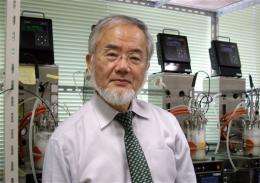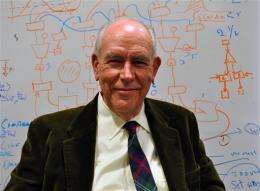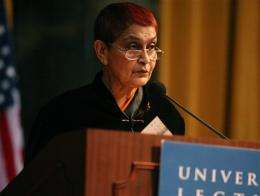US computer graphics scientist wins Kyoto Prize

(AP) — An American regarded as the father of computer graphics, an Indian literary critic and a Japanese molecular cell biologist are winners of the annual Kyoto Prize, Japan's highest private award for global achievement.
The Inamori Foundation said Friday that U.S. computer scientist Ivan Sutherland won the advanced technology prize. Sutherland is perhaps best known for developing the Sketchpad in 1963. The graphics interface program that allowed users to manipulate figures on a screen through pointing a device — an innovation that helped people use computers without the need for complicated programming.

Gayatri Chakrovoty Spivak , an Indian literary critic and educator whose work focuses on those marginalized by Western culture, including immigrants, the working class and women, won the arts and philosophy prize. A professor at Columbia University, she is known in literary circles for her essay, "Can the Subaltern Speak?" about the economically dispossessed.
Japan's Yoshinori Ohsumi, a molecular biologist at the Tokyo Institute of Technology, was awarded the basic sciences prize for his contributions in the significance of autophagy, now regarded as a vital cell-recycling system that may aid in future developments to treat neurodegenerative diseases such as Alzheimer's, cancer and other age-related ailments.

The Inamori Foundation is a charitable body established in 1984 by the founder of Japanese electronic component maker Kyocera Corp., Kazuo Inamori.
Each laureate receives a diploma, a gold Kyoto Prize medal and a cash gift of 50 million yen ($630,000) at a ceremony in Kyoto in November.
Copyright 2012 The Associated Press. All rights reserved. This material may not be published, broadcast, rewritten or redistributed.


















